Is this what you are looking for?
IF EXISTS (SELECT NULL FROM information_schema.TABLES WHERE TABLE_NAME = 'tblDateTimeDifference')
DROP TABLE tblDateTimeDifference
CREATE TABLE tblDateTimeDifference (
starts datetime, ends datetime
)
INSERT INTO tblDateTimeDifference
SELECT '2015-02-19 00:00:00.000', '2015-02-19 00:01:00.000' UNION
SELECT '2015-02-19 00:01:00.000', '2015-02-19 00:02:00.000' UNION
SELECT '2015-02-19 00:02:00.000', '2015-02-19 00:03:00.000' UNION
SELECT '2015-02-19 00:03:30.000', '2015-02-19 00:04:00.000' UNION
SELECT '2015-02-19 00:04:00.000', '2015-02-19 00:05:00.000' UNION
SELECT '2015-02-19 00:05:00.000', '2015-02-19 00:06:00.000' UNION
SELECT '2015-02-19 00:06:00.000', '2015-02-19 00:07:00.000'
;
WITH cte AS (
SELECT ROW_NUMBER() OVER (ORDER BY starts) AS row_num, starts, ends
FROM tblDateTimeDifference
)
SELECT a.row_num AS compare_me, b.row_num AS to_me, a.ends AS compare_me_ends, b.starts AS compare_to_me_starts, DATEDIFF(ss, a.ends, b.starts) AS gap
FROM cte a INNER JOIN cte b ON a.row_num = b.row_num - 1
Here is a fiddle:
http://sqlfiddle.com/#!3/9db054/1
